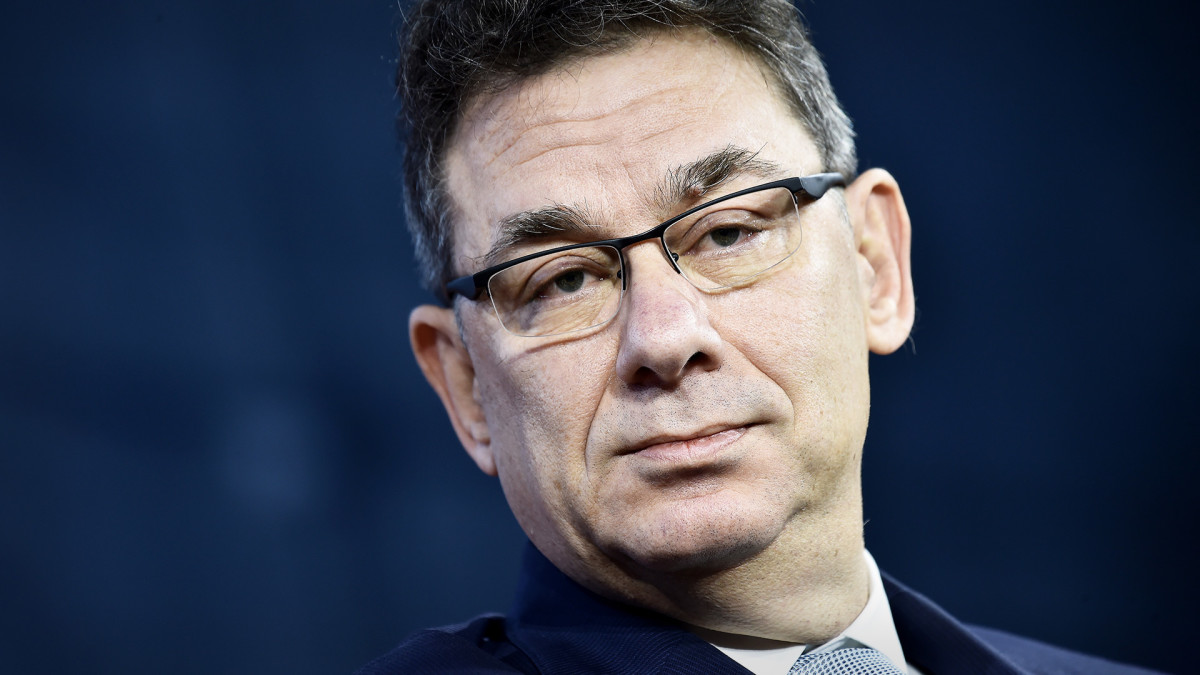Big Pharma’s global machine has stocked American drug cabinets for decades.
However, this year cracks in that setup have begun to appear — and are getting harder to ignore.
These include fragile overseas supply lines and a new wave of political heat in Washington, pushing the “America First” agenda.
💵💰Don’t miss the move: Subscribe to TheStreet’s free daily newsletter💰💵
However, yesterday’s shock twist out of Washington could test just how tough Big Pharma really is, with health care stocks already feeling the pain.
 Big Pharma stocks brace for impact as Trump’s tariff twist clouds the outlook.
Big Pharma stocks brace for impact as Trump’s tariff twist clouds the outlook.
Image source: Steven Ferdman/Getty Images
How Big Pharma’s global web became a political target
Since the post-World War II boom, Big Pharma has relied on a spread-out global supply chain to crank out life-saving drugs at scale.
Cheap raw chemicals and active pharmaceutical ingredients (APIs) come from India and China.
Complex biologics are fine-tuned in Europe, while the final packaging wraps up under testing U.S. quality rules.
At the same time, there are little to no import tariffs involved, which effectively keep costs in control for patients.
Related: Cathie Wood shells out $13.9 million for one high-stakes biotech stock
That conducive setup has enabled Big Pharma to shore up cash and pour a big chunk of that into R&D and splashy marketing.
The strategy has also invited a ton of criticism over the years, as pharmaceutical giants sidestepped the need to build expensive domestic factories.
In many ways, the Covid pandemic ripped open that model, exposing shaky lead times and overreliance on a few mega-factories.
President Trump’s first term took aim at that fragile infrastructure.
Back in 2018, “America First” trade talk turned pharmaceutical imports into an easy target. Some of these included a 25% tax on APIs from China and 20% on India, which chipped away at margins for basics like antibiotics and cancer drugs.
More Stock News:
- Veteran analyst drops new clue on Nvidia’s next big move
- Nvidia-backed stock sends a quiet shockwave through the AI world
- Veteran Tesla analyst drops 4-word call
In response, multiple health care giants scrambled to “friendshore” production to Southeast Asia, dodging cost spikes while avoiding building domestic production.
Industry groups waved red flags at the time, warning that these measures could damage resilience by effectively switching up choke points instead of fixing them.
However, Trump’s second term has picked up where they left off, aiming to secure America’s medicine chest, all while trying to avoid blowing up margins, innovation, or patient access.
The unprecedented 200% tariff threat set to rattle Big Pharma
President Trump’s latest tariff threat is essentially a bomb dropped in the middle of Big Pharma.
The idea of a 200% tariff on pharmaceutical imports is a potential earthquake for a sector that’s heavily reliant on sprawling global supply chains to make the drugs Americans depend on.
Unlike steel or copper, where the margins aren’t as thin, pharmaceutical stocks face a brutal reality check. The new 200% levy on those imports could potentially triple input costs overnight.
Pharma stocks like Johnson & Johnson (JNJ) are bracing for impact.
JNJ still sources a ton of its active pharmaceutical ingredients from China and India. If those hubs get hit with such massive hikes, analysts warn there may not be a quick fix.
The fallout will likely hit company bottom lines and slow down production as companies scramble to pass costs on to patients.
Related: JPMorgan delivers blunt warning on S&P 500
Merck (MRK) is already penciling in a $200 million hit under a modest tariff scenario. Similarly, while Pfizer (PFE) says its 10 U.S. plants could cushion the blow, the bulk of its sterile injectables and complex APIs still flow through Europe and Asia.
For health care stocks looking to adjust, the timing couldn’t be worse.
Big names like Bristol Myers Squibb and Novartis have ramped up U.S. manufacturing in recent years to soften the blow, with Novartis alone spending $23 billion to build six new plants stateside.
But those plans take time.
In the short term, a whopping 200% tariff would kill margins, freeze merger and acquisition pipelines, and force big emergency price hikes.
Hence, one tariff swing this big doesn’t just chomp away at profits; it upends the entire Big Pharma supply web.
On top of that, legislative headwinds like Medicare’s drug-price talks under the Inflation Reduction Act could shave a whopping $100 billion off industry revenues this decade.
No wonder the VanEck Pharmaceutical ETF (PPH) has been limping so far this year, down 0.74% in a month, barely up 2.39% in six, and off 1.71% for the year.
Related: Veteran analyst drops jaw-dropping price target on AppLovin stock
